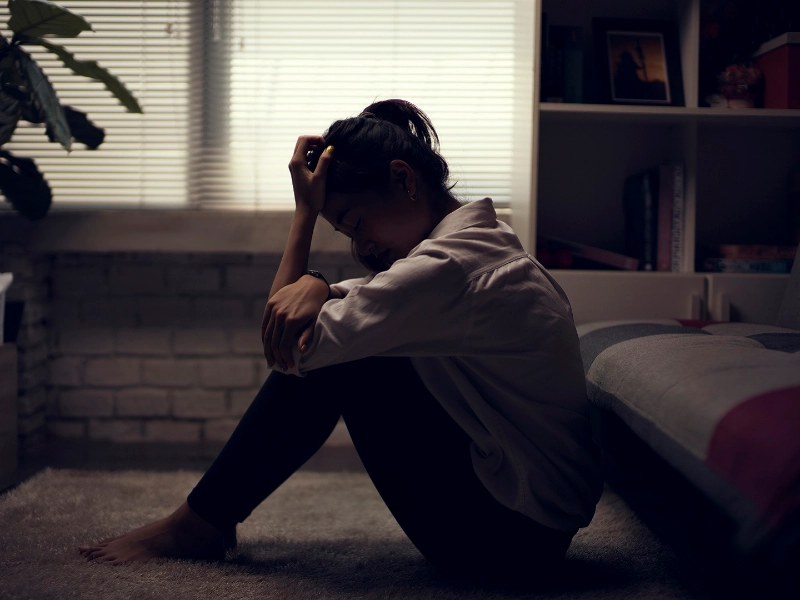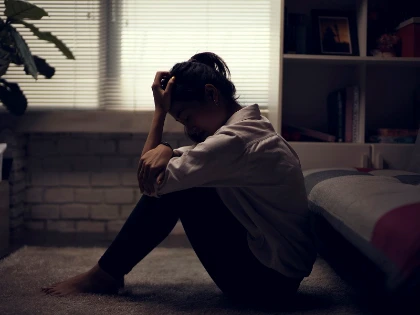1. You’re not depressed.

Advertisement
Feeling down or low can arise for many reasons, such as having a difficult time at work, your partner leaving, or grieving the loss of someone dear to you.If you're feeling depressed, it is essential to reach out for help as soon as possible. You may require support from a healthcare professional, friend or loved one, or religious leader.
2. You’re not sad.

After a loss, breakup, or other major life event, it's normal to feel sad. But the feelings can quickly turn into depression if they don't fade away with time or start interfering with daily activities.If you're struggling with persistent feelings of sadness, reach out for support in managing them. Finding ways to cope can help keep you on track and make them less intense over time.
3. You’re not anxious.

Anxiety often stems from a fear of uncertainty. You may have a plan B in case an emergency arises, but you don't stress over every detail or try to predict what will take place.It's beneficial to accept that life won't always go as planned, and so you need to learn to accept that fact.
4. You’re not tired.

Everyone experiences fatigue from time to time, but chronic fatigue may indicate a larger underlying health concern.If you're feeling particularly fatigued and don't find relief from rest, it may be a sign that you should consult a physician.Fatigue can be caused by a number of things, such as stress, nutritional deficiencies or an underlying medical condition. Fortunately, if caught early enough, treatment for fatigue is usually successful.
5. You’re not irritable.

Though some level of irritability is normal, persistent irritation that lasts months on end could indicate a more serious problem. Seeking medical assistance for this condition is recommended since it could be indicative of another mental health disorder such as depression or anxiety.You might also be able to assist someone else with irritability by offering them coping skills. Sometimes this could just mean reminding them to take a break from whatever is causing their agitation.
6. You’re not angry.

Though everyone experiences anger from time to time, feelings of uncontrollable, maladaptive anger may indicate an underlying mental health issue.If someone does something that causes you to feel angry, it's essential to work on solving the problem or finding a healthy way of expressing your emotions. But if the anger continues long after the event that caused it, consider seeking professional help for depression.
7. You’re not bored.

Boredom is often associated with depression, but not always. While boredom may be a precursor to clinical depression, it could also be indicative of other mental health issues like anxiety or stress.If you find yourself feeling bored for extended periods of time, try to find a way to break up the monotony. This could be as easy as taking a walk or trying an activity that's not your favorite.
8. You’re not impulsive.

Impulsive behavior can be an inevitable part of life. But when it's affecting your relationships or ability to function normally in everyday tasks, then it's time for you to seek assistance.If you suffer from a mental health disorder, your doctor may suggest medications to help control impulsive behaviors. These are most successful when combined with therapy.
9. You’re not withdrawn.

When someone experiences depression, social withdrawal can become a problem. This occurs when they avoid social situations or interactions, fail to engage with others, and become isolated from their support network.Social withdrawal can also put physical health at greater risk, so taking steps to prevent it is so important.
10. You’re not aggressive.

Aggression is an emotional reaction to a perceived threat. This may manifest in both physical and verbal forms of aggression.Depression can manifest itself in various forms, so if you think you might be struggling with something mental, speak to your doctor.



















